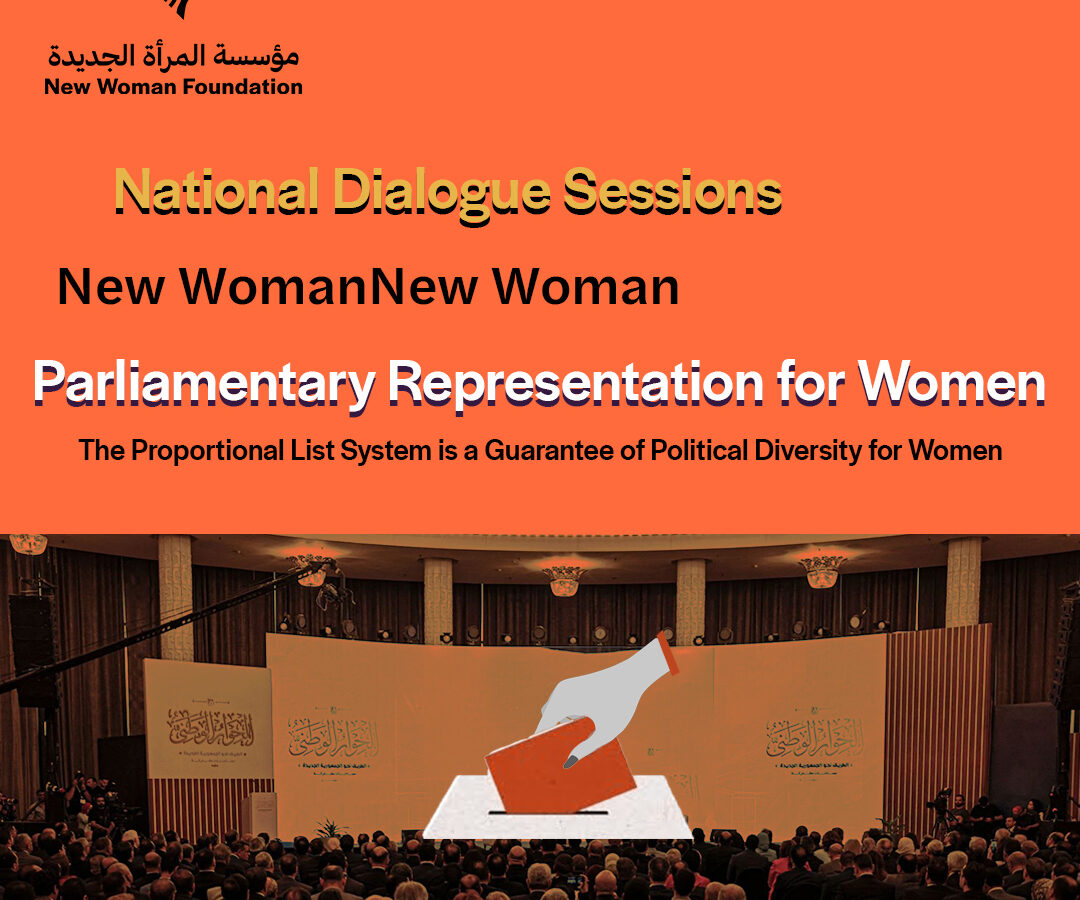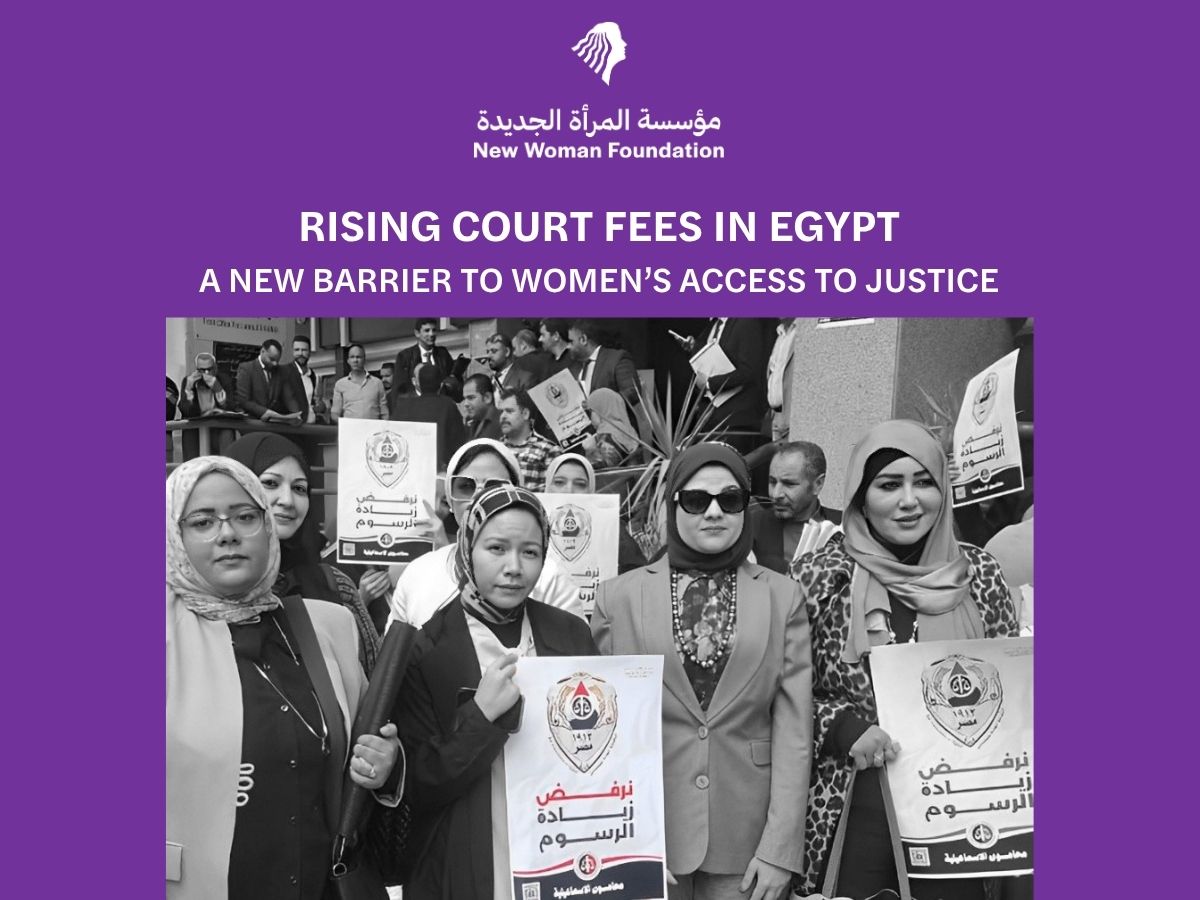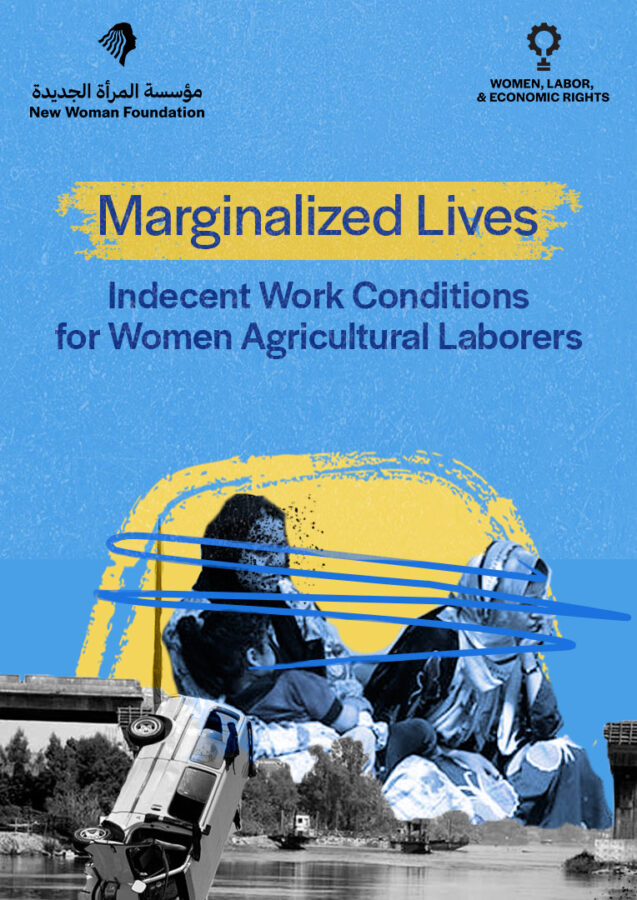- Contact Us
- 0020233382706
- nwrc@nwrcegypt.org
National Dialogue Sessions New Woman Foundation’s Vision about Parliamentary Representation for Women
Despite the increase in the ratio of women’s parliamentary representation in the parliament of 2020, and that it exceeded the percentage specified in the constitution for women’s representation, which improved the rates of indicators of political participation of women in parliamentary councils, and also improved the performance of the Egyptian state in regard to the indicator of political empowerment of Egyptian women internationally and regionally, yet the high representation ratio does not necessarily mean a guarantee of diversity and pluralism for a broad spectrum of politicized women, nor does it necessarily mean that the high representation ratio came as a result of a true democratic practice based on competitive programs of action among different parties and women.
We also cannot pass the low ratios of popular participation in voting in the recent parliamentary elections of 2020, which brought the system of absolute closed lists in addition to the individual system, which reached 29% of the total number of male and female citizens who have the right to vote, compared to the higher participation ratio achieved by male and female citizens in the elections of the parliament of 2012, which brought the system of proportional lists in addition to the individual system.
Despite the higher percentage of women’s representation in the current parliament compared to the one before, this does not necessarily indicate an organized and effective parliamentary performance for a large female ‘block’ of female parliamentarians. This indicates that the electoral system that came with this percentage did not reflect on the development of a noticeable feminist or female parliamentary performance, nor did it reflect on the parliament’s adoption of a specific legislative agenda in favor of women. What women have achieved in terms of some legislative gains came from the contribution of the executive authority in raising some limited legislative amendments to some of the ‘exhausted’ legislations, most of which need to be updated in accordance with many of the constitutional entitlements of women.
In this context, we still believe that adopting the proportional list system is the best for politically diverse representation of women. It will also give vitality to the parliamentary and legislative practice of women, and ensure democratic representation for a wide range of potential women parliamentarians who have different political and legislative proposals for women’s issues and for the country in general.
In order to ensure that the proportional list system achieves a ratio of no less than 30% of women’s participation in the parliament, we suggest adopting the following interventions:
– Representation of women on the proportional list according to the system of reciprocal seats (women, men) or vice versa, similar to the Tunisian experience.
– Dividing constituencies according to a wide geographical and population environment, which contributes to reducing the impact of tribal and sectarian affiliations and other obstacles in front of women’s political participation in favor of the growing space for partisan and programmatic political practice for proportional list candidates.
– Emphasis on the guarantees of the integrity of the electoral process, by guaranteeing the availability of permanent judicial supervision over all parliamentary entitlements, and the extension of the influence of judicial supervision beyond the electoral commissions to ensure the impartiality and peacefulness of the electoral process and adherence to the law.
– Effective implementation of the law on the exercise of political rights, and the application of the law to criminalize cases of publishing and broadcasting hate or discrimination speech against women candidates, or infringing personal life, or inflaming tribal or sectarian strife, and definitely criminalizing the use of political money, and counting these practices in general and what they involve as punishable electoral violations according to law, it will call for urgent intervention to stop it, and enable female candidates, if proven, to appeal the result.
– Follow media policies that encourage women’s political participation, and allocate equal media campaigning times for all competing female candidates in the media.




